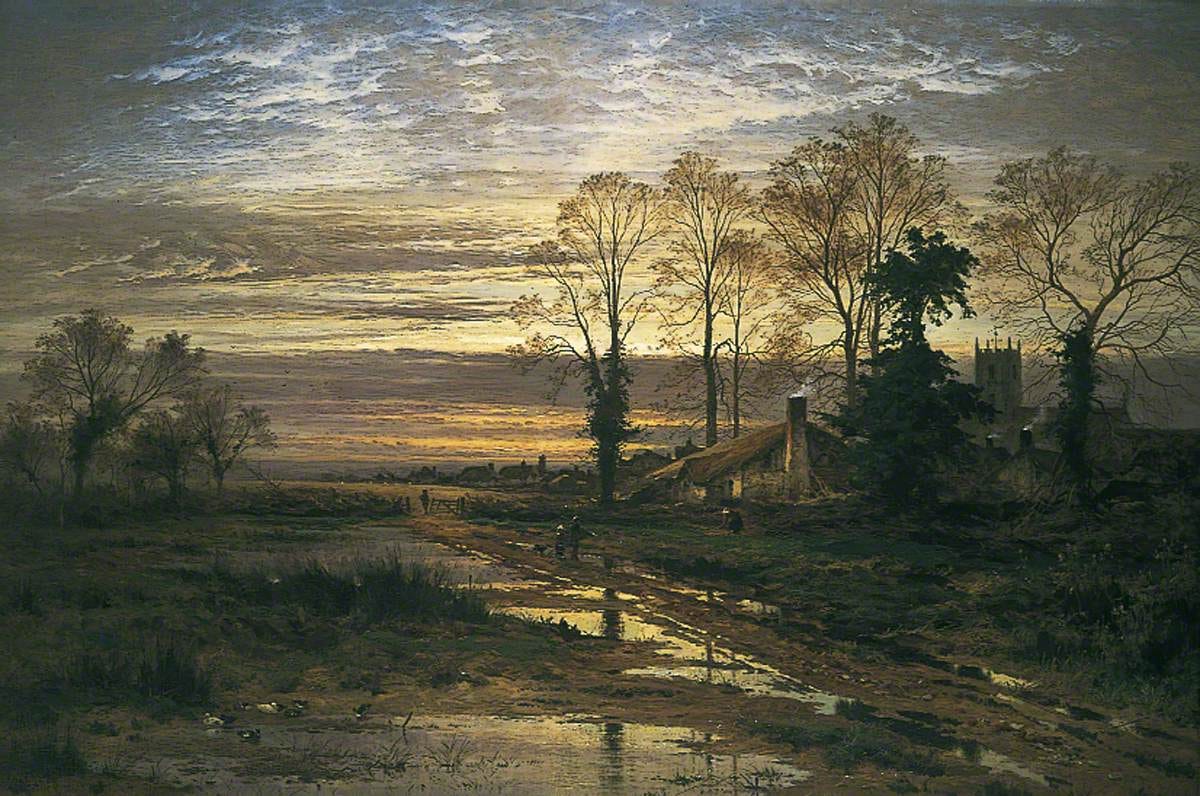Hello readers. It is the time of the month where we all gather, albeit virtually. I hope you are all getting through this darkest of months. ‘Getting through’ is about all you can do in an Irish February, in my experience. This month has been one long rain storm. Everything is muddy when it’s not damp. You just have to put one foot in front of the other, and make sure you’re wearing wellies.
But the equinox is coming soon. In the meantime, we have space to talk. Before we get started though, I’d like to quickly bring two little things to your attention:
First: my offer to new paid subscribers of ten percent off annual and monthly subs is still running for another three weeks. You can avail of that by clicking here.
Second: the St Basil’s Writer’s Workshop, on which I’ll be teaching a course later this year, along with Jonathan Pageau and others, is open for applications for a short while longer. I sat down for an interview with fellow author, and instigator of the course, Nicholas Kotar a few weeks back. We talked about writing, my novels, my work here, and some other things. The film of that is below. More about the course can be found here.
Back to business.
As ever in our monthly salon, you can talk, argue, debate, rhapsodise or speculate about anything you want. But if you’d like a prompt, here’s one from me.
I started writing my series of Machine essays on Substack because I was feeling increasingly alienated from everything I thought I was, and I wasn’t sure where that was taking me. I wasn’t sure what I believed anymore. I had conflicting emotions and ideas about much that was happening around me, and I didn’t know how to enunciate them. Writing is how I process situations like this.
I was growing older, granted, but the culture around me was also changing so fast that the things I had once believed no longer seemed to hold. But what had changed? Me, or the culture, or both? I was finding that writing things I had once written with no problem were now getting me slapped with nasty labels. And I was finding that politics was upside down. All the foundations seemed to be slipping or shaking.
Back in my essay series, I wrote two essays about what I called the ‘culture of inversion’ we’re living in now in the West (you can read them here and here.) I wrote about how our post-modern anti-culture, hollowed out and spiritually empty, has turned all of its previous values on their heads without having any new ones of substance to replace them with. Into this spiritual void, as I mentioned also in my recent little film, monsters will rush. We can all feel them rushing in now. But we don’t want to acknowledge the monsters. The arrival of the monsters might mean that we were wrong about … well, quite a lot of things. So we turn away, again and again.
I know that since the pandemic a lot of people have had their eyes opened about a lot of things. Quite a few of us are not who we were before. My drive to reconsider much I once thought was true is older than that, but it has been turbocharged by the 2020s. Of course, minds keep changing. Come back in five years and let’s see how we’re all feeling then.
Still, I thought it might be interesting, here and now, to ask a question to any of you who feel like answering it. On any issue at all - personal, political, cultural, spiritual - what, in recent years, have you changed your mind about?
Talk about that, or anything else you like. Over to you.






I spent a lot of time in nature alone. I am an agriculturalist after all. In the past most of that time has been inside my head trying to figure out God. Truth goodness and beauty as they say. I was always trying to approach the problem in that order but recently I have discovered after decades of attacking the problem the wrong way around that for men there's only one way to know God and that is first through Beauty then to goodness and if you're lucky truth. It may seem like a small reordering of things but it might take me the rest of my life to figure it out and it certainly will to put it into practice. Maybe not so much a change of mind but certainly a change of practice and perception.
I changed my mind about trusting my kids' pediatrician. She always seemed like a nice lady at their checkups, and I had no reason to distrust her. Then in 2022, when information was coming out all over the place about the Covid vaccine causing myocarditis in teen boys, she asked if my son (a runner in perfect health) had had his booster shot. I said we were going to hold off on that until more studies came out.
She looked at me blankly and said: "What studies?"
"There are studies going on all over the world," I sputtered. What studies?? I wasn't paying this bimbo to pluck my kids' eyebrows; she was their doctor. Yet she didn't have a clue.
Now I take my kids to sports physicals twice a year. Full stop. Unless they need acute care, CA pediatricians can go to hell. Quite a change.